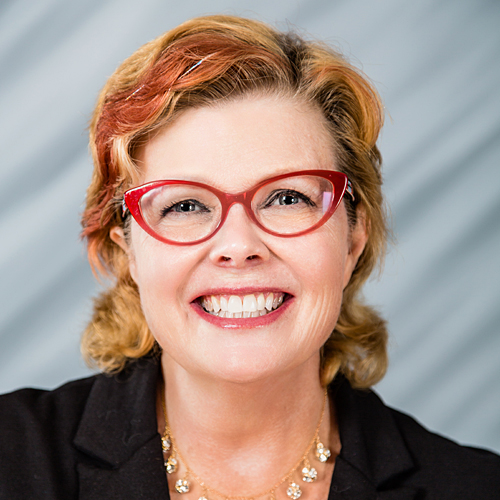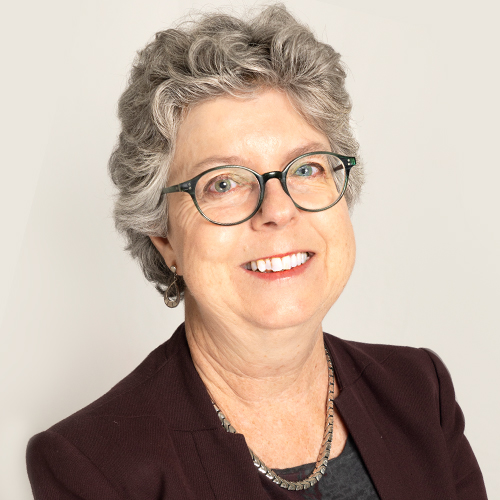 Breastfeeding Advocacy Online Course(s) & Continuing Education
Breastfeeding Advocacy Online Course(s) & Continuing Education
Access the latest clinical skills and research for Breastfeeding Advocacy for Lactation & Breastfeeding professional training. These Breastfeeding Advocacy online courses provide practice-changing skills and valuable perspectives from leading global experts. This Breastfeeding Advocacy education has been accredited for a variety of CEUs / CERPs and can be accessed on-demand, at your own pace.

Leadership Skills in Lactation: Make Extraordinary Things Happen

Paulina is the mother of three multicultural Latino children and Project Director for Lifespan Local. Paulina earned her BS in Psychology from the Pennsylvania State University, a MS in Organizational leadership from the University of Denver and is completing her PhD in Health and Behavioral Sciences at the University of Colorado - Denver. Paulina has over 18 years of experience working with families with young children. As a Maternal Child Health specialist for Jefferson County Public Health, she developed a NICU follow-up home visitation program and the pediatric emergency preparedness plan, co-founded and coordinated the Conectando Network (former Adelante Jeffco), established community navigation and lactation support groups focused on the Latino Spanish speaking community, and lead other initiatives to support leadership and partnerships among communities and organizations. During the COVID-19 pandemic, she managed the new program Whole Community Inclusion to ensure the pandemic response and recovery implementation included health equity practices that recognize the needs and the strengths of priority populations in the county. Her areas of current work include promoting perinatal and infant mental health along the continuum of care; building community capacity to navigate health and education systems; facilitating organizational change to embrace linguistic and culturally responsive practices; and establishing community-placed participatory programs to strengthen communities. She likes to be with people, learn from and with others, and connect passions for meaningful work.
Topic: From the NICU to the home: mother’s experiences - [View Abstract]
Topic: Leadership Skills in Lactation: Make Extraordinary Things Happen - [View Abstract]
Topic: Liderazgo en Lactancia - Para Alcanzar Metas Extraordinarias - [View Abstract]
Topic: Nursing A Preemie, Perspectives For Lactation Supporters and Professionals - [View Abstract]
Many of us come to work in breastfeeding envisioning a world where mothers and babies can breastfeed without barriers; however, we quickly learn that breastfeeding challenges go beyond latching and positioning.
To effectively support a breastfeeding/chestfeeding family, we have to support the parents, the extended family, the primary care provider, the workplace culture, the childcare, and the community; in summary, supporting one dyad can be an intervention to the whole social system. Indeed, breastfeeding advocacy is about building systems and consistently leading cultural changes to more deeply reinforce human feeding as the norm.
Kouzes and Posner (2012) state: “if you want to have a significant impact on people, on organizations, and oncommunities, you’d be wise to invest in learning the behaviors that enable you to become the very best leader you can.” With that in mind, lactation consultants and lactation advocates would benefit by learning leadership behaviors and skills that will support their efforts towards cultural change, inspire shared visions, challenge processes, becoming strategic advisors, and leading from the inside out.
Lactation leaders would benefit by being able to align values and beliefs with actions and strategies to promote breastfeeding as part of whole community development and as a public health strategy. In that way, lactation has a presence in early childhood initiatives, maternal and infant health, mental health programs, and any health, social, educational intervention.
Want to normalize lactation? Join this interactive session and become the leader who can make extraordinary lactation things happen in your community.
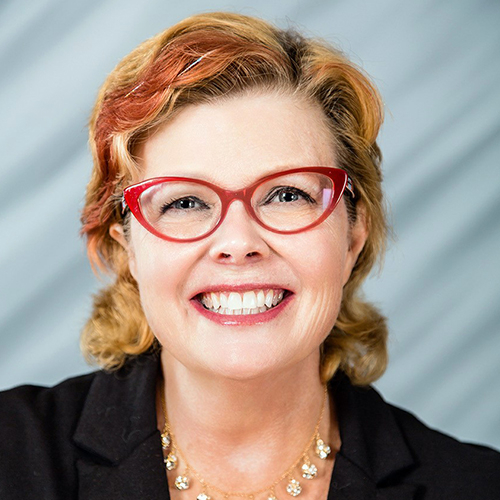
Lessons to Learn from Fed Is Best: How Can We Improve Our Care?

Dr. Kendall-Tackett is a health psychologist and International Board Certified Lactation Consultant, and the Owner and Editor-in-Chief of Praeclarus Press, a small press specializing in women's health. Dr. Kendall-Tackett is Editor-in-Chief of the journal, Psychological Trauma and was Founding Editor-in-Chief of Clinical Lactation, a position she held for 11 years. She is Fellow of the American Psychological Association in Health and Trauma Psychology, Past President of the APA Division of Trauma Psychology, and a member of APA’s Publications and Communications Board.
Topic: Breastfeeding Helps Mothers Overcome the Legacy of Abuse and Adversity: It Makes All the Difference - [View Abstract]
Topic: Burnout, Compassion Fatigue and Self-Care for Members of the Perinatal Team - [View Abstract]
Topic: Burnout, Secondary Trauma, and Moral Injury in Perinatal Care Providers - [View Abstract]
Topic: Does Breastfeeding Protect Maternal Mental Health? The Role of Oxytocin and Stress - [View Abstract]
Topic: Lessons to Learn from Fed Is Best: How Can We Improve Our Care? - [View Abstract]
Topic: Mother-Infant Sleep Location: It's Not as Simple as it Seems - [View Abstract]
Topic: Trauma and Breastfeeding: Working Effectively with Trauma Survivors - [View Abstract]
Topic: What’s New in Postpartum Depression? A Summary of Current Findings - [View Abstract]
Fed is Best is a foundation with a major social media presence who seek to warn parents and practitioners about the dangers of insufficient exclusive breastfeeding. Through their social media campaigns that have galvanized a backlash against exclusive breastfeeding, lactation care providers, and the Baby-Friendly Hospital Initiative. Although lactation specialists disagree with much of their content, they have raised awareness about mothers who do fall through the cracks of our care system and may suffer as a result. The steep drop-off in rates of exclusive breastfeeding is an indication of this. This presentation will examine three provider-level barriers that negatively impact breastfeeding and what we can do to improve care so that mothers will reach their breastfeeding goals.

View Details / Enroll

Liderazgo en Lactancia - Para Alcanzar Metas Extraordinarias

Paulina is the mother of three multicultural Latino children and Project Director for Lifespan Local. Paulina earned her BS in Psychology from the Pennsylvania State University, a MS in Organizational leadership from the University of Denver and is completing her PhD in Health and Behavioral Sciences at the University of Colorado - Denver. Paulina has over 18 years of experience working with families with young children. As a Maternal Child Health specialist for Jefferson County Public Health, she developed a NICU follow-up home visitation program and the pediatric emergency preparedness plan, co-founded and coordinated the Conectando Network (former Adelante Jeffco), established community navigation and lactation support groups focused on the Latino Spanish speaking community, and lead other initiatives to support leadership and partnerships among communities and organizations. During the COVID-19 pandemic, she managed the new program Whole Community Inclusion to ensure the pandemic response and recovery implementation included health equity practices that recognize the needs and the strengths of priority populations in the county. Her areas of current work include promoting perinatal and infant mental health along the continuum of care; building community capacity to navigate health and education systems; facilitating organizational change to embrace linguistic and culturally responsive practices; and establishing community-placed participatory programs to strengthen communities. She likes to be with people, learn from and with others, and connect passions for meaningful work.
Topic: From the NICU to the home: mother’s experiences - [View Abstract]
Topic: Leadership Skills in Lactation: Make Extraordinary Things Happen - [View Abstract]
Topic: Liderazgo en Lactancia - Para Alcanzar Metas Extraordinarias - [View Abstract]
Topic: Nursing A Preemie, Perspectives For Lactation Supporters and Professionals - [View Abstract]
Muchos de nosotros comenzamos a trabajar en lactancia visualizando un mundo donde las madres y los bebés pueden amamantar sin barreras; sin embargo, aprendemos rápidamente que los desafíos de la lactancia materna van más allá del prendimiento y el posicionamiento.
Para apoyar efectivamente a una familia que amamanta, debemos apoyar a los padres, a la familia extendida, al doctor, a la cultura del lugar de trabajo, a la guardería y a la comunidad; en resumen, apoyar a una familia se transforma en la oportunidad para afectar todo el sistema social. De hecho, promover la lactancia se trata de construir sistemas y liderar cambios culturales para reforzar más profundamente la alimentación con leche humana como la norma.
Kouzes y Posner (2012) afirman: "si desea tener un impacto significativo en las personas, en las organizaciones y en las comunidades, lo más recomendable sería invertir en aprender comportamientos que le permitan convertirse en el mejor líder que pueda ser". Con esto en mente, los consultores y asesores de lactancia se beneficiarían aprendiendo conductas de liderazgo y habilidades que apoyarán sus esfuerzos hacia el cambio cultural, inspirarán visiones compartidas, desafiarán procesos, se convertirán en asesores estratégicos y liderarán desde adentro hacia afuera.
Los líderes en el mundo de la lactancia se beneficiarían de poder alinear valores y motivaciones con acciones y estrategias para promover la lactancia como parte del desarrollo de toda la comunidad y como una estrategia de salud pública. De esta forma, la lactancia tiene presencia en las iniciativas para la primera infancia, la salud materna e infantil, los programas de salud mental y cualquier intervención sanitaria, social y educativa.
¿Quiere normalizar la lactancia? Participe de esta presentación y aprenda a liderar iniciativas de lactancia extraordinarias en su comunidad.
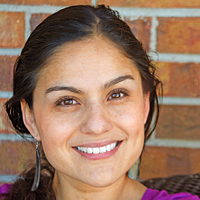
View Details / Enroll
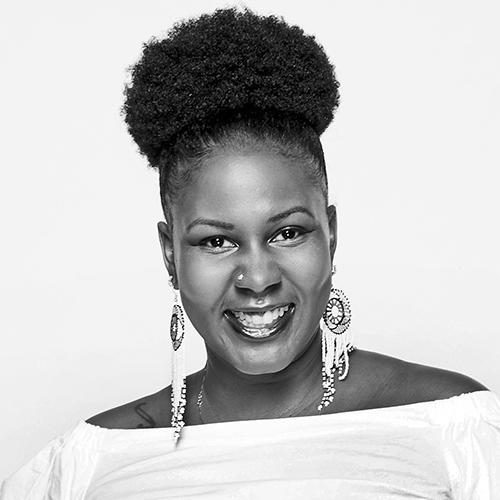
Meet Them Where They Are: Applying a Multidisciplinary, Equitable and Sustainable Approach to Breastfeeding and Lactation Practice & Promotion

TaNefer is an IBCLC, Maternal Health Strategist and Healer with over 15 years of experience in supporting families through birth, breastfeeding and postpartum. She has a background in psychology and Health education with an emphasis in community health and early career experience in counseling, social services and family advocacy. She brings a wealth of knowledge and experience as she helps her clients identify their challenges and lovingly guides them through a plan to overcome them. She has the ability to work with diverse populations and tailors support to fit the needs of each unique person or group. She educates parents, families and professionals on lactation, breastfeeding and maternal healing. She is also a researcher, serving as a Community Advisory Board member to the UCSF Preterm birth initiative and is also the Community Researcher and Relations consultant to the SACRED Birth Study. She has designed, implemented and evaluated programs in maternal equity and lactation and is the creator of the "Teach me how to breastfeed" song and viral music video. TaNefer Lumukanda Camara is also a Co-founder B.L.A.C.K Course.
It’s been a decade since the Surgeon General’s call to action to support breastfeeding. While great strides have been made to improve breastfeeding rates in the US, diverging societal conditions, disparate birth outcomes and changing family dynamics have necessitated adjustment and adaptation of more inclusive and multifaceted approaches to lactation support. With up to 34% of birthing people having experienced a traumatic birth, one study has shown how the effect on breastfeeding can go in either direction. If we factor in housing instability, mental health and race/immigration status we see greater disparities and/or differing needs according to the target population. However, the paradox is that these issues are not mutually exclusive, therefore a one size fits all approach is not sufficient. The COVID-19 Pandemic shed light on pre-existing gaps and disparities in this field and forced us to reimagine what breastfeeding promotion, protection and support should and can be. Implementing a multi-disciplinary plan to approach breastfeeding and lactation should be the trend moving forward. In this presentation you will learn how to:
Identify disciplines that can collaborate with lactation specialists to support breastfeeding promotion.
Discuss challenges in supporting populations with multiple needs and high risk.
Strategize a plan for reaching marginalized communities and populations at high risk and high need for lactation support.

Strategies to Improve Infant Feeding Practices and Indicators in a Private/Corporate Maternity Set Up

Dipti Shah is a Mother Support Group Leader - Lactation Counsellor since 1998 & Lactation Consultant since 2010. She was trained by BPNI Maharashtra Faculty & has been providing Lactation Counselling services in multiple Institutional Hospitals & small maternity homes in Mumbai for over 2 decades. She has wide experience in community advocacy & Individual Counselling in indoor, OPD, home and online settings. She is senior trainer for BPNI Maharashtra & participated as faculty in over 100 workshops in Seven States of India & for 5 batches of ’96 hrs of Lactation Specific Education’ for IBLCE preparation (2010-2021). She mentored many Lactation counsellors and consultants. She is a BFHI Assessor since 2001 & has trained two groups of ‘Traditional Massage Women’ in basics of infant feeding and childcare. She has extensively contributed to multiple training modules, presentations & videos for BPNI Maharashtra & Maharashtra Government & UNICEF. She is also office coordinator of BPNI Maharashtra since 2004. She participated in Expanded Global Breastfeeding Partners Meeting (GBPM) of WABA at Penang, Malaysia in 2010. She was felicitated with ‘Dr N.B. Kumta Award’ in 2016. She exclusively breastfed her son for 6 months and continued well into 2nd year.
Ruth Patterson is Cloud Nine's P I O N E E R & most sought Lactation Specialist with 32 years of rich experience. Ruth is currently practicing at Jayanagar C9, Bangalore-India and a visiting Lactation Consultant with 8 other Cloud Nine branches locally, while als heading the 22 Pan India Cloud Nine Hospitals as the Manager Lactation. Ruth's primary role is to ensure C9 nurses complete level 1 and level 2 LSTP course (Lactation Skilled Training Program). Ruth is acclaimed for the use of Dynamic Taping (only available at Jayanagar C9) that arrests/prevents breast surgery/abscess. This Dynamic Taping practice, alongside, a Gynecologist, Pediatrician and Physiotherapist at Cloud Nine, is now under patent stage.
Ruth's 30+ years of rich experience includes maternity, allied health and nursing care, both in rural and urban sector in India & Abroad. With Exclusive 17 years of experience in Lactation services, Ruth has acquired immense practical knowledge in the last decade to identify most critical disorders of mother and babies during breastfeeding stage. Ruth is acclaimed to have expertise in a lesser-known art of re-lactation and induced lactation.
Ruth is a well sought out person for patient hearing and provides her expert comments in News columns/Media and also delivers guest lectures globally.
Lactation Consultants/Counselors are the emerging professionals in developing countries like India. Breastfeeding practices are still heavily influenced by traditions and often left to the expertise of elders in the family. Many health care providers are unaware of the emergence of Human Lactation Management as a science & the availability of experts in their vicinity. Most maternity services do not have a dedicated Lactation Consultants/Counselors. Even where such facility exists, there is a lack of management strategies to improve & sustain breastfeeding rates & outcomes. This presentation will help Lactation Consultants & Counselors learn how to convey to management that there is a need for a Lactation Consultant/Counselor to set up the administrative strategy and protocols for ensuring things like early initiation of breastfeeding, exclusive breastfeeding, prevention and prompt treatments of breastfeeding problems, post discharge follow-up and care, monitoring of breastfeeding indicators, maintaining BFHI status and regular and ongoing training of staff to build adequate knowledge and skills.

View Details / Enroll
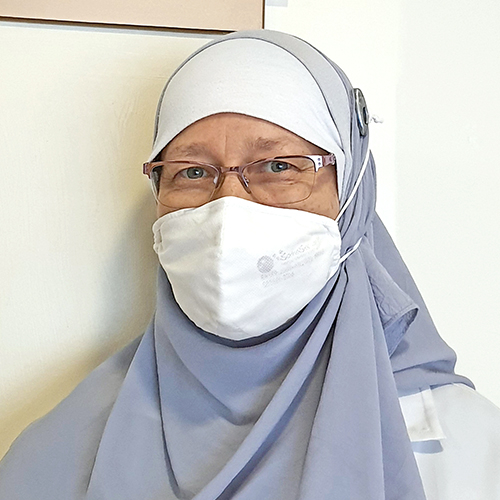
The Sharjah Baby-Friendly Campaign: A Community-Based Model for Breastfeeding Promotion, Protection and Support

Evelyne Ruf is a family physician from France, and an International Board Lactation Consultant (since 1993). More than 25 years ago, she shifted to the United Arab Emirates (UAE), working for the Ministry of Health, in Sharjah MCH Center. She opened there the first Lactation Clinic in the UAE, with the support of volunteers from Breastfeeding Friends (BFF), which she had co-founded.
Five years ago, the Lactation Clinic has been shifted to the Family Health Promotion Center, where it continues to offer, to a very cosmopolitan population, skilled lactation support as well as assessment and release of tethered oral tissues.
A member of the National Breastfeeding Committee, Evelyne has been involved in the Baby-Friendly Hospital Initiative as a lecturer, trainer, adviser and assessor. Her workplace became the first Baby-Friendly Health Center in the UAE and received the IBCLC Care Award (community category) in 2015.
She has also been actively involved in the Sharjah Baby-Friendly Emirate Campaign, a multi-sectorial initiative launched in 2012, and presented its achievements during Gold Lactation 4 years ago.
With her husband of 34 years, she is the proud and grateful mother of 5 grown-up breastfed children and the grandmother of 4 breastfed little ones.
Topic: The Sharjah Baby-Friendly Campaign: A Community-Based Model for Breastfeeding Promotion, Protection and Support - [View Abstract]
Despite the recommendations and various initiatives to promote breastfeeding, most women don’t reach the exclusive breastfeeding target in both developed and developing countries. Similar has been the case in the United Arab Emirates.
Therefore based on the decree by the ruler of the Emirate of Sharjah, UAE, a multi-sectorial, multi-directional breastfeeding campaign-the Sharjah Baby-Friendly Campaign- was launched in March 2012. It consisted of 4 initiatives namely Baby-Friendly Health Facility, Mother-Friendly Workplace, Breastfeeding-Friendly Nursery and Mother-Baby Friendly Public Place. Once an organization met the criteria for any of these initiatives it was awarded the designation or accreditation of that initiative.
The campaign initiatives worked through capacity building of healthcare workers, developed breastfeeding education content and resources, and conducted community outreach through social media.
The positive impact of the campaign on breastfeeding promotion, protection and support is evident by the tripled exclusive breastfeeding rate at 6 months over a 5 years period.

View Details / Enroll
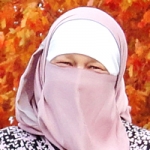
View Details / Enroll
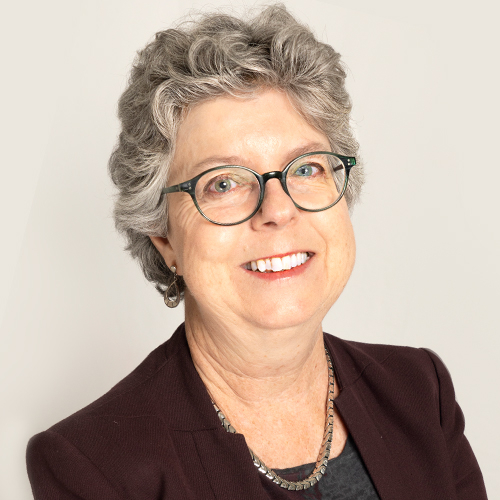
Urban Design Solutions to Support Breastfeeding in Public

Professor Lisa Amir is a general practitioner and has been an International Board Certified Lactation Consultant since 1989. She is the author of over 120 peer-reviewed articles on breastfeeding. She works in breastfeeding medicine at The Royal Women’s Hospital in Melbourne, Australia. She is a Principal Research Fellow at Judith Lumley Centre, La Trobe University and is the Editor-in-Chief of the open access journal, International Breastfeeding Journal.
Topic: Ethical Issues in the Use of Medications During Lactation - [View Abstract]
Topic: Taking a Lactation History: From Pregnancy to Postpartum and Beyond - [View Abstract]
Topic: Urban Design Solutions to Support Breastfeeding in Public - [View Abstract]
Some mothers find it challenging to breastfeed outside the home, and this may contribute to cessation of breastfeeding earlier than planned. To date, breastfeeding women have not been included in most public space designs, such as parks, shopping centres or public buildings. I worked with experts in planning and urban design to explore design features that invite or deter breastfeeding in public. We conducted interviews and focus groups with breastfeeding mothers in three local government areas in Victoria, Australia. We received input from over 80 mothers speaking five languages, as well as health professionals and council planning staff. Many participants reported avoiding breastfeeding in public spaces due to social expectations or physical comfort. Mothers reported that best spaces for breastfeeding were dignified, safe, comfortable, accessible, compatible with their other needs and responsibilities with a high level of amenity. Using these data, we developed design guidelines that outline how a range of everyday shared spaces could become breastfeeding-friendly as well as the optimal design characteristics for dedicated breastfeeding spaces.



